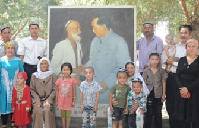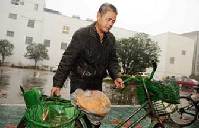A visionary rooted in service
During the Mid-Autumn Festival that year, the group staged their first show, drawing more than 1,000 Chinese from as far away as Philadelphia.
Two things happened that moved He beyond cultural activities and into civic advocacy.
| Mao's legacy lives on |
The first was in 1995 when He applied for federal funds for her nonprofit. She learned from an online list that Jewish organizations got funds in the millions each year while Chinese-American groups only got grants in the thousands.
The second event was a well-publicized case - Wen Ho Lee's espionage charge in 1999. Lee, a Taiwan-born scientist who worked for Los Alamos National Laboratory, was indicted on 59 criminal counts of spying for the Chinese and put in solitary confinement for more than nine months.
The FBI dropped the case within a year and only charged Lee with mishandling classified data. President Bill Clinton issued a public apology to Lee over his treatment. Lee later said that his Chinese ethnicity was a primary factor behind his prosecution.
"I remember at the time I could not imagine what I would do if I were Wen Ho Lee. I would feel so powerless," says He. "There was no Chinese-American organization to stand up for him."
From then on, He devoted herself to building a Chinese community that could be a powerful advocate in difficult times.
In Washington at the time, there were many small groups, so-called hometown associations, that were established to bring together people from the same province or city in China.


















